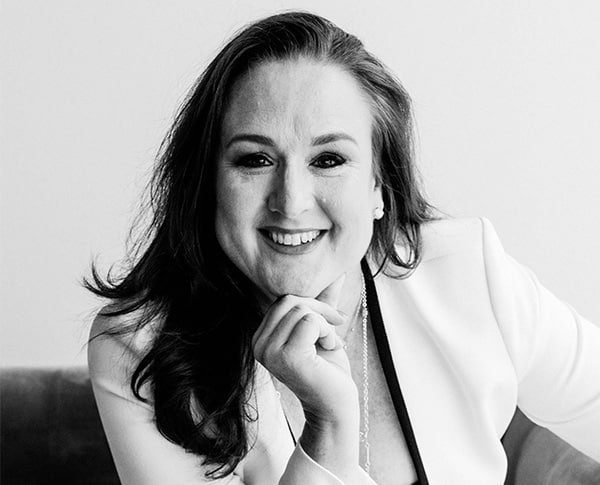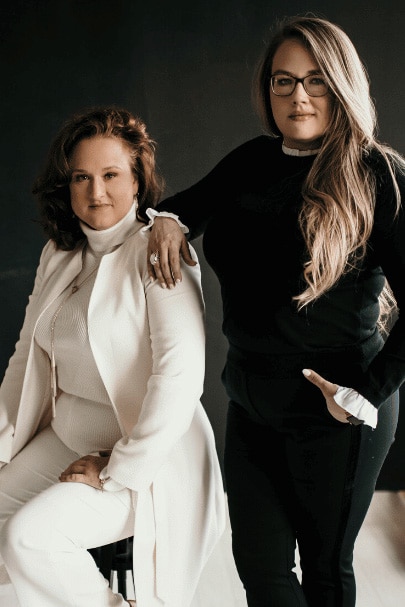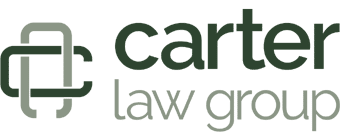We Stand With Sex Trafficking Victims
Carter Law Group is here to be your ally, your advisor, and your advocate in a sex trafficking case. Telling the stories that will save lives. Fighting the companies that look the other way and are complicit in the trafficking epidemic.
Human Trafficking & Sex Trafficking Overview
Human trafficking is an epidemic that has been allowed to hide in plain sight thanks to corporations that choose to look the other way rather than act. Hotel and motel chains, truck stops, airlines, websites, casinos, resorts—these industries and others ignore the growing human trafficking epidemic and profit immensely as a result.
Human traffickers could not operate without the cooperation of these legitimate businesses. Without legal and legitimate businesses to transport and hide their victims, traffickers’ business would suffer. Human & Sex trafficking victims are transported via the transportation services we use and see every day—commercial airline flights, buses, trucks, taxis, trains.
Human & Sex trafficking enterprises operate out of companies we use and see every day—hotel and motel chains, massage parlors, nail salons, truck stops. Other companies benefit from cheap or free labor from human trafficking victims forced into modern-day slavery. That cooperation—whether negligently or purposefully given—enables traffickers to victimize thousands upon thousands of men, women, and children. It stops now.
These companies have benefited from the suffering of trafficked individuals for years and they’ve done so by turning a blind eye to what was right in front of them. In looking the other way, these companies knowingly make money off the suffering and exploitation of the most vulnerable of our population, fail to report the trafficking crimes they saw, fail to develop and enforce appropriate policies and procedures to address the growing trafficking crisis, and profit all the while.
Complicit Companies
Perhaps the only thing more disturbing than the fact that millions of trafficked individuals now reside in the United States is the fact that American businesses and corporations benefit from these illegal activities. While many kinds of business participate in and profit from sex and human trafficking, there are a few industries that consistently cooperate:
Hotels and Motels
Hotels and motels are an incredibly popular location for sex trafficking. Nearly 74% of potential sex trafficking cases received by the National Human Trafficking Hotline between 2012 and 2016 were for hotel and motel-based sex trafficking. According to the Department of Homeland Security (DHS), traffickers are drawn to the privacy and anonymity hotels offer.
Hotels and motels routinely ignore the plight of sex trafficking victims, playing ostrich and sticking their head in the sand so they don’t have to look at the forced prostitution taking place on their properties. Carter Law Group is in the process of filing lawsuits against most of the major hotel and motel chains. These companies have the unique ability to both spot sex trafficking and human trafficking and then stop it. But they don’t. These companies consistently fail trafficking victims, sending them a message that their freedom, their life simply isn’t worth the hassle and lost profits. Traffickers have been using hotels and motels to operate their illegal enslavement enterprises for years. And, by declining to act, the hotels and motels are complicit in those efforts.
Sex traffickers use hotel and motel rooms in several ways. They may force an enslaved sex worker to stay in a hotel or motel room for an extended period and receive customers. Or, they may allow customers to rent a room in the hotel or motel and force their sex trafficking victim to service the customer in that room. To ensure that their victims are disoriented, traffickers often move them in between cities, shuffling them from hotel to hotel.
A responsible hotel or motel would seriously and extensively trained its staff on the horrendous nature of trafficking. A responsible hotel or motel would train on how to identify when trafficking is happening. A responsible hotel or motel would have a strict protocol in place for what employees should do when they suspect trafficking. A responsible hotel or motel would enact a self-policing mechanism to ensure the training and protocols are being followed. Too many hotels and motels in the United States fail to act responsibly. Thousands upon thousands of people have suffered as a result and more suffer every day.
The hospitality industry has a responsibility to keep its premises safe, and any premises found to be harboring sex trafficking enterprises should be held accountable.
Truck Stops
Truck stops are a popular sex trafficking hub. Chains like Flying J, Love’s, Pilot, Travel Centers of America, and Buc-ee’s are home to a steady supply of truckers and travelers willing to pay for sex. These locations appeal to traffickers because they’re remote, which reduces unwanted interference and attention from law enforcement, and helps keep victims disoriented, unfamiliar with their surroundings, and unable to navigate. This constant disorientation forces trafficking victims to be dependent upon their traffickers.
The homeless population and runaway minors are frequent truck stop sex trafficking targets.
Like hotels and motels, truck stops have a responsibility to keep trafficking off their premises. By failing to implement proper policies, failing to train themselves and their employees, and ignoring red flag after red flag, they too profit from trafficking and they too should be held accountable.
Digital Platforms
Since their creation, digital platforms have been dangerous. Sex traffickers use the anonymity of digital platforms to support and grow their enterprises, enslaving thousands of victims. Sex traffickers use social media networks to develop relationships with potential victims and lure them into trafficking. Traffickers troll web sites, locate and target victims and pay them special attention, wanting them to feel noticed and wanted. Young women are especially susceptible to these tactics and are often targeted. The most common digital platforms trolled by traffickers include:
- Facebook
- Twitter
- Instagram
- Tinder
- PlentyOfFish
- Craigslist
- Other dating websites
Like the hospitality industry and truck stops, technology companies have a responsibility to protect their users—especially minors—from predators. When they fail to do so, they should be held accountable.
Other Culprits
Other industries that have contributed to and profited from the sex trafficking and human trafficking crisis include:
- Airlines
- Construction companies
- Fairs and carnivals
- Janitorial services
- Massage parlors
- Prostitution
- Salon services
- Traveling sales crews
- Strip mall owners
- Warehouse owners
How To Spot Trafficking Victims
There are clear signs of sex trafficking that you may be able to recognize. Some of these signs are individuals who are:
- Showing signs of physical abuse, nervousness, fear, anxiety, confinement, malnourished, poor hygiene, or fatigue.
- Being constantly monitored, lack freedom of movement, and have no control over money or their own ID.
- Avoiding eye contact and interaction with others.
- Wearing revealing clothing and have no luggage or bags.
- Staying in hotels or motels for weeks at a time.
- Using side entrances.
- Getting constant foot traffic from lots of men.
Watch for the following at hotels and motels, specifically:
- Refusing room service.
- Having too many people in a room.
- Abnormal foot traffic, especially from men.
- No luggage.
Watch for the following at truck stops, specifically:
- Individuals who appear nervous and are not truckers.
- Poorly lit and isolated areas.
- The same people going in and out.
- Lots of people going to the same room or vehicle.
- No luggage.
The most at-risk individuals in our population include:
- Children in the child welfare and juvenile justice systems
- Runaway and homeless youth
- Unaccompanied children
- Native Americans and Alaska Natives
- Migrant laborers, including undocumented workers and participants in visa programs for temporary workers
- Foreign national domestic workers in diplomatic households
- People with limited English proficiency or low literacy
- People with disabilities
- Lesbian, gay, bisexual, transgender, and intersex people
- Participants in 449 URUGUAY court-ordered substance use diversion programs
- Agricultural workers
- Caregivers
- Construction workers
Trafficked In Plain Sight
There are three dangerous misconceptions about sex trafficking and human trafficking: (1) it only happens in the dark, in the shadows, away from the public eye; (2) it only happens to foreign people – men, women, and children from other countries; and (3) it’s pretty rare. All of that is incorrect. Trafficking is happening every day, in plain sight, to United States citizens, to Texas residents, as well as foreign individuals, and the numbers of trafficked persons grows every minute.
According to the State Department, the United States is in the top three countries where sex and human trafficking victims are trafficked from. Mexico and Honduras represent the other two.
According to the International Labor Organization (ILO), there are more than 40 million people around the world who are victims of human trafficking. Over 80 percent are forced into marriages or labor against their will, of which one-quarter of them are children. Seventy-five percent of the victims are women and girls.
For additional information on the myths and true statistics of human trafficking, please visit the Polaris Project at the link below. The Polaris Project is a non-profit organization that handled 10,949 cases of human trafficking in the United States in 2019 alone. Within those cases, Polaris worked 23,078 individual survivors and investigated nearly 5,859 potential traffickers and 1,905 trafficking businesses. According to the Polaris Project, “[h]uman trafficking is notoriously underreported. Shocking as these numbers are, they are likely only a fraction of the actual problem.”
The Polaris Project:
https://polarisproject.org/
Trafficking in the United States
Thousands of men, women, and children—both domestic and foreign—are thought to be forced into modern-day slavery every year, right here in the United States. The sex trafficking and human trafficking businesses are profitable ones—they net roughly $32 billion a year in the United States and $150 billion worldwide. Sex trafficking accounts for $99 billion a year in profit in the United States, and about $99 million in Texas, specifically.
In 2000, President William Clinton signed the Trafficking Victims Protection Act (TVPA), which was the first federal law to address the issue of modern-day human trafficking. The law defines human trafficking as “the recruitment, harboring, transportation, provision, obtaining, patronizing, or soliciting of a person” for labor or sex services through the use of “force, fraud or coercion.” The Trafficking Victims Protection Act has been reauthorized and amended several times since it was first signed into law. One of the most recent additions was the Justice for Victims of Trafficking Act (JVTA) of 2015, which applies criminal liability against those who purchase sexual services from victims of trafficking. The JVTA also established the U.S. Advisory Council on Human Trafficking, which consists of trafficking survivors who advise the federal government and review current policy and efforts to stop these crimes. The Department of Justice, Department of Homeland Security, and Department of State are the primary agencies tasked with investigating sex and human trafficking. In 2017, these agencies launched nearly 2,000 investigations.
Dallas: Our Home and A Human Trafficking Hub
An estimated 400 teens are sold for sex every day in the Dallas-Fort Worth metroplex. Children are trafficked and exploited in businesses all around us every day. According to New Friends New Life, a Dallas-based nonprofit, Texas ranks second in the United States for the highest number of trafficking victims. The City of Dallas is one of the top ten cities nationwide with the most sex trafficking.
In Dallas alone, the illegal sex trade is a $99 million business.
On average, victims are 13 when they are forced into the sex trade.
Over half of trafficked victims were initially youth runaways, making Dallas ripe for traffickers, as Dallas is home to nearly 3,400 homeless youth.
Watch a Dallas City Hall panel discussion addressing these very issues here: https://www.facebook.com/DallasCityHall/videos/10155217986514656
Trafficking has invaded Carter Law Group’s hometown, where our own children are growing and learning and living. The prevalence of trafficking in our very own backyard makes this fight a personal one, and one Carter Law Group intends to passionately pursue.
Community Involvement
Carter Law Group is dedicated to fighting this epidemic outside of the courtroom just as viciously as we’re fighting it inside the courtroom. We are very proud to support several organizations in our community that provide both a safe haven for trafficking victims and access to necessary services. For more information about the nonprofit organizations dedicated to ending modern-day slavery in the Dallas-Fort Worth area and beyond, please follow the links below.
Mosaic Family Services:
https://mosaicservices.org/
New Friends New Life:
https://www.newfriendsnewlife.org/
The Polaris Project:
https://polarisproject.org/
Contact A CLG Human Trafficking Attorney Today
Carter Law Group is filing lawsuits on behalf of human trafficking victims—those trafficked for either the illicit sex trade or indentured labor or servitude. And we will continue to file on behalf of the survivors who reach out to us.
Victims of sex trafficking and human trafficking have suffered physical and emotional trauma that only fellow trafficking victims would understand. If you are a victim of this atrocity, we know that you have a lifetime of recovery ahead of you. We know that you need help to regain power and control over your life. We also know that a lawsuit can’t take away the atrocities committed against you. We can’t change what happened, but we can fight with you to secure your future. Let’s meet, talk about your civil case options, and start moving forward together.
Carter Law Group Fights For Sex Trafficking Victims
Human & Sex trafficking victims are coming forward, speaking out, and saving lives. Your willingness to come forward and share your trauma, your courage to expose your traffickers and the businesses that aided them along the way, that’s our best weapon against trafficking. Carter Law Group is fighting every day to make each of your stories matter.
Let’s meet. And let’s make the world safer. Together.





